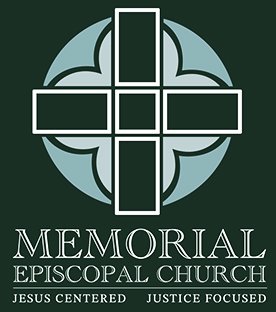The View from Bolton Street
Dear Parish Family,
My mind is on the families and friends of the people who perished on Thursday night in a mid-air collision over the Potomac River. Losing someone you love is tough in any circumstance. In a catastrophic accident, it is so shocking and unexpected that it can feel suffocating. Is there any help for that?
The way we respond to a disaster that happens quickly and unexpectedly is different than the way we respond to something that happens slowly. Sometimes the catastrophe unfolds so slowly we become accustomed to it. We can become numb, giving in to acceptance, perhaps even assuming that there is no goodness in the world and no light.
The history of the universe is filled with catastrophic events that change everything. It doesn’t help people who are grieving to say, “This happened for a reason.” It doesn’t help someone who has made a catastrophic life choice to say, “This is all your own fault.”
What does help? It’s different for everyone, but one of the most helpful things that anyone can do is choose solidarity with the person who has experienced devastation. Solidarity is love in action—showing up, asking what the person needs, and if they cannot articulate it, just stay present.
Whether you personally experience a catastrophe, or you are trying to support someone else who experiences it, the path out of the paralysis and hopelessness that it can cause exists. It’s discoverable.
The process of recovery after a soul-crushing experience or set of experiences might take a long time, but if we engage with it, we will find the path, and perhaps we will remember to mark it for the next person who must find their way through it.
In my experience “survival of the fittest” does not mean what we often think “fitness” means. I think it means that survival depends upon learning from a catastrophe and better preparing to survive the next one. The most crucial part of the process is letting go of the notion that we can “fix” a bad situation. It’s the wrong notion. Instead, I believe that we can transform a catastrophe.
Sometimes that transformation means discovering the cause of a catastrophe first and then taking measures to prevent it as in the example of the COVID-19 pandemic. But sometimes we cannot waste precious time looking for a cause while people are waiting for us to help them during their time of trial. It is critical to recognize when it’s time to discover cause (NOT BLAME), and when we must instead immediately aid the souls who are traumatized.
It was just a few weeks ago that we read in the gospel of John [1:5] that
the Light came into the world, and The light shines in the darkness, and the darkness did not overcome it. As the Body of Christ, we are now that light. It’s time to shine so that the rest of the world may believe that the darkness will not overcome us.
What happens to one of us happens to all of us, and in the face of unspeakable catastrophe, it is our job to be that Light. It may mean something different for each one of us, and I invite each one of you to discern how you will be the Light of Christ in a world that sorely needs it.
Love,
Pan +


